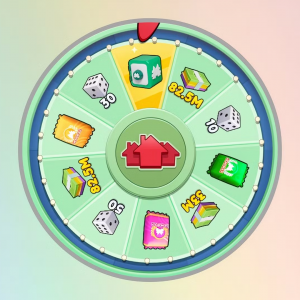Kitchen paper towels have become a staple in households worldwide due to their convenience and versatility. However, their environmental impact has raised increasing concern. From deforestation to waste generation, conventional paper towels contribute significantly to sustainability challenges. As awareness grows, both consumers and manufacturers are seeking eco-friendly alternatives and practices to reduce the footprint of this everyday product.

Environmental Impact of Traditional Kitchen Paper Towels
Deforestation and Resource Use – Paper towels are often made from virgin pulp, requiring large amounts of trees, water, and energy during production.
Carbon Footprint – Manufacturing and transporting paper towels contribute to greenhouse gas emissions.
Single-Use Waste – Unlike cloth alternatives, paper towels are disposable and often non-recyclable once contaminated with food waste.
Landfill Burden – Millions of tons of paper towels end up in landfills each year, where decomposition can produce methane, a potent greenhouse gas.
Key Approaches to Sustainability
Recycled Materials – Towels made from post-consumer recycled paper reduce the need for virgin pulp and help close the recycling loop.
Sustainable Sourcing – Certification from bodies like FSC (Forest Stewardship Council), such as bamboo kitchen paper towels, ensures that raw materials come from responsibly managed forests.

Reduced Chemical Use – Chlorine-free bleaching and natural fiber processing minimize harmful by-products during production.
Compostable and Biodegradable Options – Some paper towels are designed to break down safely in composting systems, diverting waste from landfills.
Energy-Efficient Manufacturing – Advances in production processes, including renewable energy integration, lower overall carbon emissions.
Consumer Practices for Greener Use
Opt for Reusable Alternatives – Cloth towels, microfiber cloths, or bamboo kitchen towels offer sustainable, washable options.
Use Paper Towels Wisely – Limiting use to tasks requiring disposability, such as absorbing grease, reduces waste.
Composting Used Towels – If unbleached and free from chemicals, some paper towels can be composted in home or municipal systems.
Buying in Bulk – Larger packs with minimal packaging reduce both transportation emissions and plastic waste.
Innovations in Sustainable Kitchen Towels
Bamboo Fiber Towels – Fast-growing and renewable, bamboo offers a durable and biodegradable alternative to wood-based products.
Reusable Paper Towels – Designed to withstand multiple washes, these mimic the look of traditional towels while drastically reducing waste.
Smart Packaging Solutions – Some brands are adopting recycled cardboard cores and plastic-free packaging to improve sustainability.
Life-Cycle Assessments (LCA) – Manufacturers are increasingly using LCA tools to evaluate the full environmental impact of their products and improve designs.

The Role of Consumers and Industry
Achieving sustainability in kitchen paper towels requires a dual effort: industry innovation and consumer responsibility. Manufacturers must adopt greener raw materials, energy-efficient production, and circular economy models. Consumers, in turn, can shift demand toward eco-friendly options and adopt reusable solutions where possible.
Summary
Sustainability in kitchen paper towels is not just about reducing waste; it involves rethinking materials, manufacturing processes, and consumer habits. By embracing recycled fibers, compostable options, and innovative reusable designs, the industry can reduce its ecological footprint. Consumers, through conscious choices, can accelerate this shift toward greener kitchens. Ultimately, sustainable kitchen paper towels are a small yet significant step in building a more environmentally responsible lifestyle.






